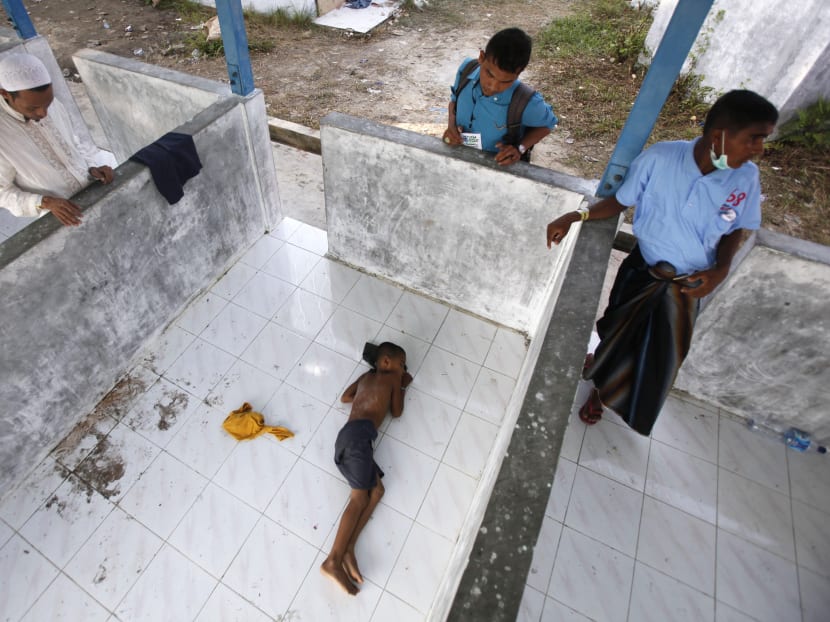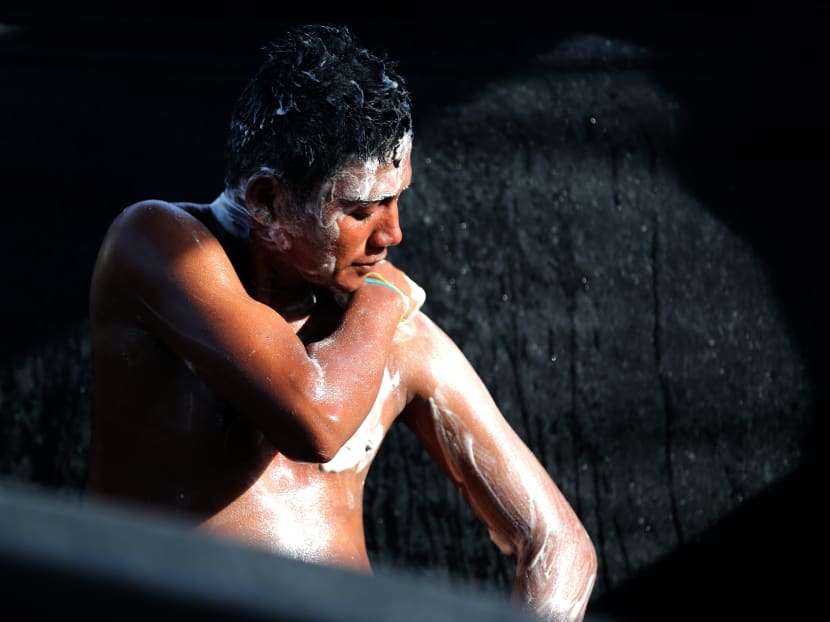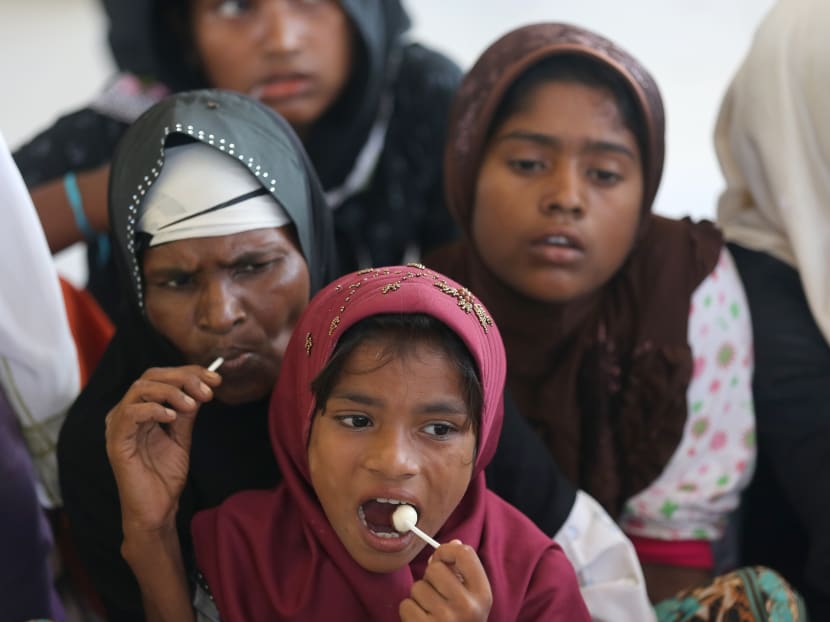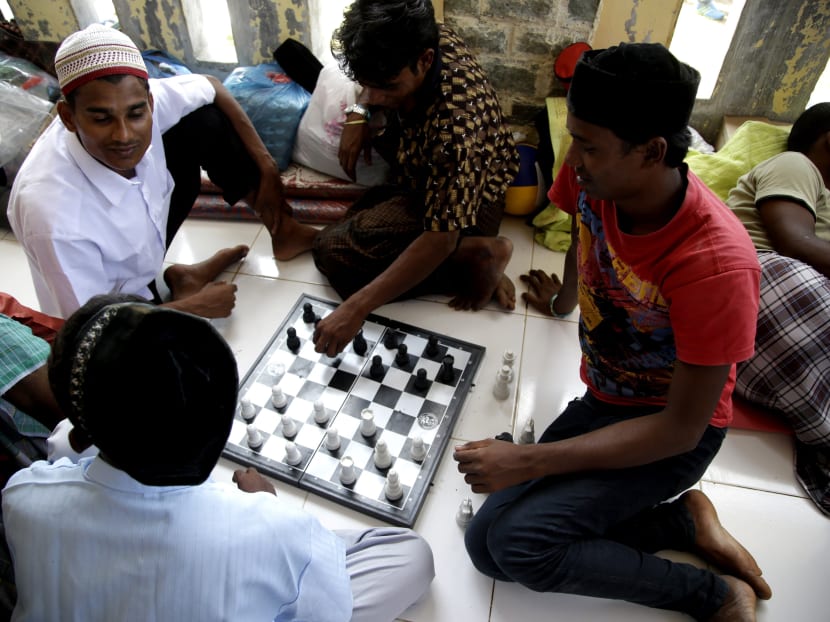US readies air patrols in search for Rohingya boat people
BANGKOK — Attention turned today (May 22) to the seas off Southeast Asia’s west coast as Malaysian naval vessels searched for stranded boat people and the US military prepared air patrols to step up its involvement.




BANGKOK — Attention turned today (May 22) to the seas off Southeast Asia’s west coast as Malaysian naval vessels searched for stranded boat people and the US military prepared air patrols to step up its involvement.
Thousands of Bangladeshis and Rohingya Muslims from Myanmar are believed to be trapped on crowded boats with little food or water — some after being pushed back by the navies of at least three countries — and the international community has warned that time to save them is running out.
In the first official rescue operation since migrants started washing onto Southeast Asia shores earlier this month, four Malaysian navy ships began searching the country’s territorial waters for the boats. Navy chief Abdul Aziz Jaafar said three helicopters and three other ships were on standby.
After pushing back several vessels earlier in the month, Malaysia and Indonesia said yesterday they will provide temporary shelter to the desperate men, women and children if the international community helps resettle them within a year.
Indonesia said it would not actively search for the migrants, but will rescue those stranded or drifting in the country’s waters close to its shores, said Mr Arrmanatha Nasir, the Foreign Ministry spokesman. He said the country would not push them back out to sea.
About 3,600 refugees and migrants have washed ashore in Malaysia, Indonesia and Thailand, about half Rohingya and the rest from Bangladesh, according to the International Organisation for Migration. The UN refugee agency estimates more than 3,000 others may still be at sea.
The US military said it was preparing to send maritime aviation patrols throughout the region, Pentagon spokesman Lieutenant Colonel Jeffrey Pool told The Associated Press yesterday. The Department of Defense “is responding to this crisis and taking this seriously”, he said.
Washington has been urging governments in the region to cooperate on search and rescue operations and sheltering the refugees and migrants. Most of the Bangladeshis are believed to be fleeing poverty and seeking better economic opportunities in Malaysia and elsewhere.
The Rohingya are fleeing state-sanctioned discrimination in Myanmar, where the government regards them as illegal migrants from Bangladesh — and refers to them as “Bengalis”, not “Rohingya” — even though many have lived in the country for generations. Neither Myanmar nor Bangladesh recognises them as citizens.
Myanmar overcame initial reluctance and agreed to join a regional meeting next week in Thailand to address the crisis.
“We are ready to cooperate with other governments to resolve the ongoing problems through constructive engagement and on humanitarian grounds,” said Mr Zaw Htay, director of the president’s office.
The decision was made after an invitation letter arrived, he said, noting it did not imply Myanmar was solely responsible for the crisis or use the word Rohingya, a term that is not recognised by his government.
Over the past few years, Rohingya have been targeted by violent mobs of Buddhist extremists and confined to camps. At least 120,000 have fled to sea, and an unknown number have died along the way.
The United States has said it was prepared to take a leading role in any multi-country effort organised by the UN refugee agency to resettle the most vulnerable refugees.
US Deputy Secretary of State Anthony Blinken, visiting Southeast Asia, met yesterday with Myanmar’s president, army commander in chief and other officials, raising “deep concern about the thousands of vulnerable migrants stranded at sea”, State Department spokeswoman Marie Harf said.
“He stressed the need for Burma to address the root causes of this migration, including the racially and religiously motivated discrimination and violence facing the Rohingya population in Rakhine State,” Ms Harf said, using the former name for Myanmar. AP






